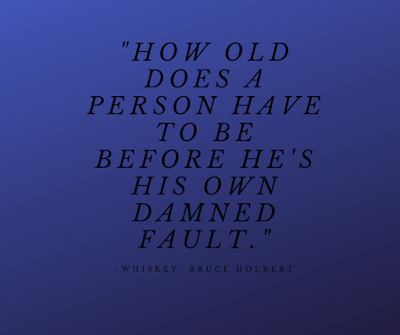I feel like I’m on a cold streak. The last few books I’ve
read have left me longing… This one almost scratched the itch.
Until I hit page
210 or so.
The premise of What Should Be Wild is enough to grab you. A
young girl, kept basically captive in her family’s old estate. Maisie’s father
can’t let her out because she has an incredible and mysterious power. She kills
everything she touches. Plants, people, animals… nothing is safe. Her mother
could not even survive the process of carrying her and she was borne from her
mother’s death She also has the power to bring things back to life with that
same touch. But, you can see why her father could take no chances. She’s also
told never to go into the mysterious woods behind the walls.
You can see where this is going.
When Maise finally ends up venturing into those woods, she
sets into motion a centuries-old curse. It’s a curse that has women from
throughout her family’s lineage, trapped in some sort of in-between. They are
there because they fled what would have otherwise held them back.
It’s fascinating and, for the first 200 pages or so, it
carried me. I was hungry for what’s next. I was anxious to see how this
“cursed” little girl could help unlock the curse that kept her ancestors
captive in the woods. Unfortunately, the book was 308 pages long. And, it took
a dive well before that ending. I found myself slogging ahead, wondering what
happened to all that juicy momentum. When Maise is forced to take a detour out
of the woods, I found myself detouring interest as well. The ending may have
been satisfying had it not been for the 100 pages or so that preceded it.
Maybe it’s me. Maybe it’s that this was the author’s first
book. Either way, what started out as such a fascinating story ultimately lost
me. Maybe a re-write would do the trick, as the ending was somewhat satisfying
on its own.
I actually finished this book more than a week ago, but just
got around to writing about it because it just didn’t interest me enough to
share.
Unfortunately, the book I’m currently reading may be
following the same fate.
Stay tuned…








